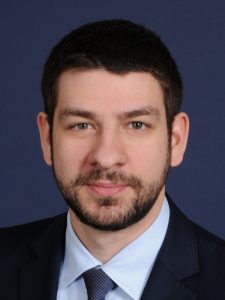About the talk:
What growing multipolarity will mean for investors and for Emerging Markets such as China and India in 2015
Investors are going to have to become aware of how geopolitics and economics intersects in the post-Cold War era. A central theme of this era is the rise of global multipolarity. Multipolarity implies that the number of states powerful enough to pursue an independent and globally-relevant foreign policy (so-called ‘great powers’) is greater than one (unipolarity) or two (bipolarity). Today, multipolarity is the product of America’s decaying unipolar moment, which lasted for two decades following the Cold War. But multipolarity may be temporary, a transitory state between the post- Cold War era, and either an even greater unipolar hegemony (of perhaps a rising China or a revitalized America) or, more likely, a world of balancing coalitions.
While future is unclear, we know from International Relations theory and empirics that multipolarity is unstable and more likely to produce military conflict. Furthermore, evidence from World System theorists suggests that it is also incompatible with economic globalization. The stakes for investors are therefore considerable, particularly as the U.S. geopolitically deleverages from the Middle East and focuses on containing China. One thing is clear, the ‘Goldilocks Era’ for investors is over. The time when geopolitics could be ignored for the sake of ceteris paribus is over.
Speaker Bio:


Marko Papic joined BCA Research in September 2011 and is the Chief Strategist of BCA’s Geopolitical Strategy service. Marko launched Geopolitical Strategy in March, 2012, a service that blends BCA’s macroeconomic research with the geopolitical methodology, with the goal of avoiding bias and providing investment-relevant forecasts. The GPS service is the financial industry’s only dedicated geopolitical strategy.
Prior to joining BCA he was a Senior Analyst for STRATFOR, a premier global intelligence agency where he contributed to the firm’s global geopolitical strategy as well as its analyst recruitment and training program. Marko is a sought after geopolitical strategist, having been interviewed by numerous media organizations – including The New York Times, CNN, BBC, CNBC, Al Jazeera, Associated Press, etc. Before joining BCA, he also helped create the Center for European Union Studies at the University of Texas at Austin. Marko holds graduate degrees from the University of Texas at Austin and the University of British Columbia, and has lived in 8 countries on three continents.
Discussants
Chair: Dr. Yves Tiberghien, Director, Institute of Asian Research
Dr. Kurt Huebnert, Director, Institute for European Studies
Dr. Murali Chandrashekaran, Senior Associate Dean, Sauder School of Business
Lunch will be served to registered guests. Please sign up by Wednesday, January 28, 2015.
Sponsor: Institute of Asian Research, Sauder School of Business, Institute for European Studies
By: Mr. Marko Papic, Chief Strategist, BCA Research
Type: Event

